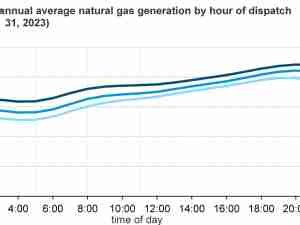The Biden administration’s pause on new liquefied natural gas export licenses could last months as the Department of Energy reviews the issue, according to a US energy official.
“We anticipate the analysis that’s underway now taking several months because this is an issue of such significant importance,” Brad Crabtree, assistant secretary for the department’s Office of Fossil Energy and Carbon Management, said in an interview. Responding “responsibly” to comments and analysis will “take a significant period of time,” he said in Tokyo on Friday.
The DoE stopped approving new licenses in January to study the potential effects of increased gas production and exports on climate change, the economy and national security. The review won’t affect previously granted authorizations, and after a report is published and made available for comment it will be finalized and incorporated into the agency’s public interest determinations.
The move strikes at the heart of the debate over LNG’s role in a decarbonizing world. While advocates contend it’s crucial for getting developing nations to stop using coal and enabling Europe to power its economy without Russian gas, environmentalists warn that building the enormous infrastructure required to ship LNG ensures it will be burned for generations to come.
White House energy advisor Amos Hochstein said in an interview with Al Arabiya English posted on X in February that the pause on LNG permits could last between 10 and 14 months, which suggests the entire process is likely to stretch well past the US presidential election in November.
The US shipped about 90 million tons of LNG last year, the most of any nation, and its export capacity is slated to nearly double by the end of the decade. Japan’s trade minister, as well as Jera Co., the nation’s biggest importer, raised concerns about energy security following the White House’s move.
Part of the purpose of Crabtree’s trip to Tokyo was to convey to Japanese partners that “we are 100% focused on their energy security,” he said. “They understand that in the near to medium term, we are going to be bringing substantially additional natural gas to market,” Crabtree said.








